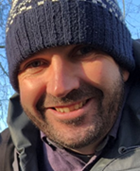PSI Webinar: Statistical Challenges in Gene Therapy Trials
Date: Wednesday 23rd March 2022
Time: 14:00-16:30 GMT
Speakers: Gerry Downey (Bluebird Bio), Shihua Wen (Novartis), and Chenxuan Zang (Duke University).
Who is this event intended for? Statisticans working in - or interested in - gene therapy treatments.
What is the benefit of attending? Attendees will have the opportunity to hear topics and case studies covered that relate to: Gene therapy, Estimands, Real world data and Trial design.
Registration
You can now register for this event. Registration fees are as follows:
- Members of PSI = Free of charge
- Non-Members of PSI = £20+VAT
To register for the session, please click here.
Overview
Research and clinical trials for gene therapies pose many specific challenges. These can be due to comparing potentially curative treatments to a standard of care with different modes of action or even no currently available treatments. There may also be small sample sizes due to rare or ultra-rare diseases. The talks in this webinar will cover challenges related to study design, including estimands, and use of real-world data and evidence to supplement clinical trial data. Case studies of such challenges will be presented.
Speaker details
|
Speaker
|
Biography
|
Abstract
|
|

Gerald Downey (Bluebird Bio)
|
Gerry has over 20 years experience in biostatistics and began his statistical career as an industrial placement student with GlaxoWellcome in 1998, before moving from the UK to the United States to work in academic funded clinical research in HIV. Prior to joining bluebird bio in 2021, Gerry worked in gene therapy at Orchard Therapeutics and Amgen, most recently supporting the regulatory approval and reimbursement of gene therapy products including Libmeldy (@ Orchard) and Imlygic (@ Amgen).
In his current role at at bluebird bio, Gerry oversees biostatistics activities for real world evidence and reimbursement dossiers for bbb gene therapy programs.
|
Gene Therapy, Real-World Data and Real-World Evidence
There is a growing interest in whether real-world data (RWD) and real-world evidence (RWE) can be used to supplement evidence from gene therapy clinical studies to support decision making. Statistical issues surrounding gene therapy and specifically rare diseases in the RWD/RWE setting will be discussed.
|
|

Shihua Wen (Novartis)
|
Dr. Shihua Wen is currently a director of biostatistics in Novartis Pharmaceuticals Corp. (US). He joined Novartis in 2016 and started to work in gene therapy area since last year. Dr. Wen has rich experience in late phase clinical development across multiple therapeutic areas. At Novartis, he serves as the statistical lead for global clinical development programs in neurology area and successfully supported multiple regulatory submissions for health authorities’ approval. Prior to Novartis, he worked in Abbott Laboratory / AbbVie Inc. as a biostatistician as well with increasing responsibility. Dr. Wen received his doctoral degree in statistics at University of Maryland, Collage Park, in 2007. His research interests are drug development, benefit-risk assessment, innovative trial design, data fusion, etc. |
Estimands in gene therapy trials
According to the ICH E9 (R1) guidance, an estimand is a description of the treatment effect associated with a clinical trial objective. Since its final approval and release in 2019, estimand discussion is almost unavoidable in clinical trials design under the regulatory environment. This presentation will look into the estimand used in gene therapy trials, describe the current practice and discuss some potential further improvements.
|
|

Chenxuan Zang
(Duke University)
|
Chenxuan is a 2nd-year Master student, studying Biostatistics and Bioinformatics at Duke University School of Medicine.
Her research interests include: clinical trial methodology, real-world data/real-world evidence, composite index, statistical genetics.
|
Statistical Considerations for Gene Therapy in Rare Diseases Clinical Trials
For rare disease drug development, one of the challenges is that there are only limited subject available for clinical trials. It is quite difficult to obtain substantial evidence to support effectiveness and safety for approval of a rare disease drug product. However, FDA indicated that the Agency does not have the intention to create a statutory standard for rare disease drug development. In this case, innovative thinking and approach for obtaining substantial evidence need to be applied. Some innovative thinking includes: (1) a probability monitoring procedure for sample size requirement, (2) demonstrating not-ineffectiveness, (3) borrowing real-world data (RWD), (4) using complex innovative design to shorten the process of drug development. In addition, a case study of Luxturna, the first approved gene therapy for a rare disease is discussed.
|




